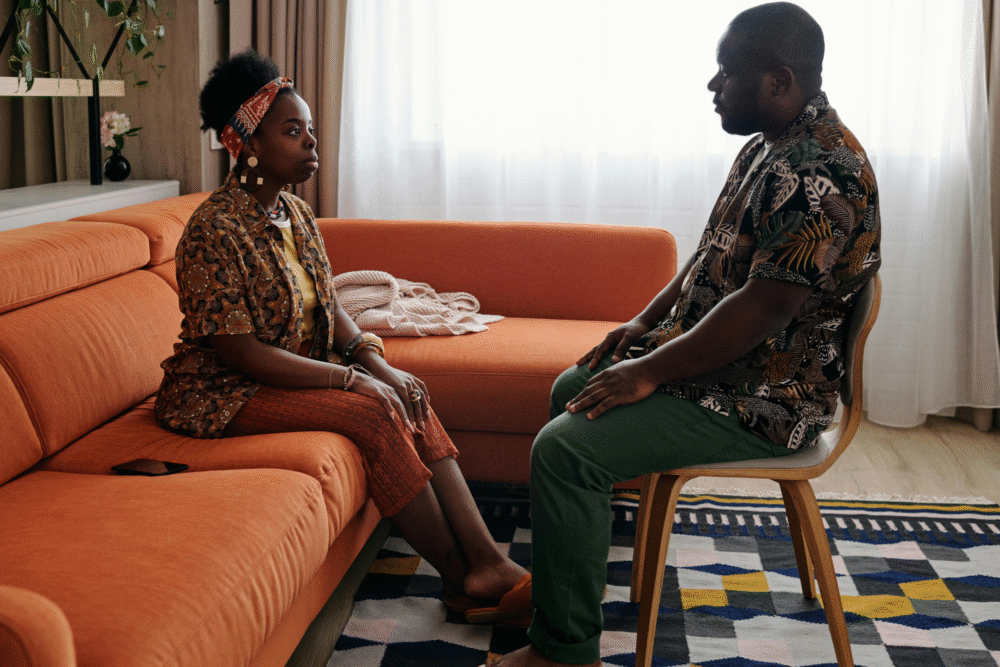Apologies aren’t enough—these phrases show emotional responsibility and real growth.

Even the most caring people sometimes hurt those closest to them. But what sets emotionally intelligent individuals apart is how they respond afterward. They don’t default to excuses, denial, or empty apologies. Instead, they lean into self-awareness, accountability, and empathy. They know that words have weight—and that healing begins with what they choose to say next.
These are the people who value connection over ego, and repair over pride. When love has been bruised, they use language that softens pain, rebuilds trust, and opens the door to forgiveness.
1. I was wrong—and I take full responsibility for what I did.

Emotionally intelligent people don’t dance around blame or minimize the damage. They understand that taking ownership is a vital first step toward repair. This phrase eliminates defensiveness and excuses. It tells the hurt person, “I’m not here to justify, I’m here to own.” Acknowledging fault clearly and humbly allows the other person to feel seen and validated.
It also builds the foundation for trust to eventually return. Saying “I was wrong” may feel vulnerable, but it shows emotional strength, not weakness. It’s how adults lead with integrity after letting someone down.
2. I can see how that hurt you, and I hate that I caused it.

Validation is everything when someone’s in pain. Emotionally intelligent people don’t just focus on their intent—they acknowledge the impact. This statement communicates empathy and remorse without shifting the spotlight back onto themselves.
It tells the injured person, “Your feelings are real, and I get why this was painful.” When someone feels truly understood, it softens defenses and makes healing more possible. This isn’t about groveling—it’s about centering the wounded person’s emotional experience and expressing deep regret for having triggered it.
3. I want to understand what you’re feeling—even if it’s hard to hear.

Listening—really listening—is an emotionally intelligent superpower. After causing pain, it’s tempting to avoid tough conversations, but emotionally aware people lean in. They’re not afraid to ask questions that might sting because they know healing starts with understanding.
This phrase shows a willingness to face discomfort, take feedback, and validate another person’s reality. It invites dialogue, not defensiveness. When someone hears this, they know they’re not being dismissed—they’re being welcomed into a safe space where their hurt matters.
4. I didn’t mean to hurt you, but I know that I did—and I’m sorry.

Intent doesn’t erase pain—but acknowledging it alongside impact shows thoughtful awareness. This phrase threads the needle between explanation and accountability. It helps the other person understand the action wasn’t malicious while still owning the harm it caused.
Emotionally intelligent people use this type of language to bridge the gap between themselves and their loved one. It’s a gentle way of saying, “This wasn’t my goal—but your pain is still real, and I care deeply.” When said with sincerity, it can soften even deeply rooted hurt.
5. I’ve taken time to reflect on what happened, and I’m working to change it.

Repairing trust isn’t just about apologizing—it’s about evolving. Emotionally intelligent people know that one of the best forms of an apology is changed behavior. This phrase signals not just regret, but growth. It lets the other person know this wasn’t brushed off or forgotten—it was taken seriously.
By emphasizing reflection and effort, it helps rebuild confidence that the hurtful moment won’t be repeated. It’s a sign that the speaker values both the relationship and their own accountability enough to do the internal work.
6. You don’t have to forgive me right away—I just want to earn your trust back.

Emotionally intelligent people don’t demand immediate forgiveness. They respect the timeline of the person they’ve hurt. This statement removes pressure and puts the focus where it belongs: on repair, not rushing reconciliation. It shows patience, maturity, and a commitment to restoring the relationship the right way—not the fast way.
When trust has been broken, knowing the other person isn’t pushing you to “get over it” can be a healing balm. It makes space for emotional honesty and slower, more sustainable repair.
7. Is there anything I can do right now to support you or make this easier?

People who hurt others but still want to show up ask this kind of question. It’s not performative—it’s genuinely helpful. It puts the needs of the injured person front and center. Emotionally intelligent people understand that apologies alone don’t always cut it.
Sometimes, action speaks louder. Whether it’s giving space, checking in later, or handling responsibilities to lighten the load, offering support proves remorse through behavior. It also rebuilds safety, showing that the hurt wasn’t just noted—it’s being actively responded to.
8. I let my emotions take over, and I’m working on why that happened.

Emotional intelligence isn’t about being perfect—it’s about being self-aware. Admitting that you lost control, raised your voice, or lashed out shows you’re not hiding behind pride. This phrase reveals a willingness to do the inner work, not just slap a Band-Aid on the moment. It also reassures your loved one that you’re not ignoring your patterns—you’re facing them.
By pulling back the curtain on your emotional world, you invite connection and show that this mistake isn’t being buried. It’s being studied and corrected.
9. Thank you for being honest with me—I know this isn’t easy for you either.

It takes courage for someone to tell you they’re hurt. Emotionally intelligent people recognize that, even in their own shame or regret. This phrase shifts the moment from one of self-defense to one of appreciation.
It acknowledges that healing conversations are hard on both sides, and that speaking up is an act of vulnerability and trust. When you thank someone for telling you the truth—even if it stings—you show that their honesty is safe with you. That alone can strengthen the bond moving forward.
10. I care deeply about you, and I hate that I caused this rift between us.

Sometimes the most healing thing to hear is that someone still cares. Emotionally intelligent people express their love clearly—especially after conflict. This phrase bridges the space between hurt and hope. It reminds the other person that, no matter what was said or done, the relationship still matters. It’s a way of anchoring the connection even when emotions are raw.
When paired with accountability, this kind of statement helps reassure the other person they’re not alone in the effort to mend things.
11. I’m still learning—and I hope you’ll be patient with me as I grow.

Owning your imperfection is a powerful form of humility. Emotionally intelligent people know they’ll mess up—but they don’t pretend otherwise. This phrase shows both vulnerability and intention. It says, “I know I have work to do—and I’m doing it.”
It also invites grace, not because you’re entitled to it, but because the relationship is worth preserving through the process of growth. Everyone is evolving, and this kind of honesty reminds your loved one that change is possible—and you’re committed to it.
